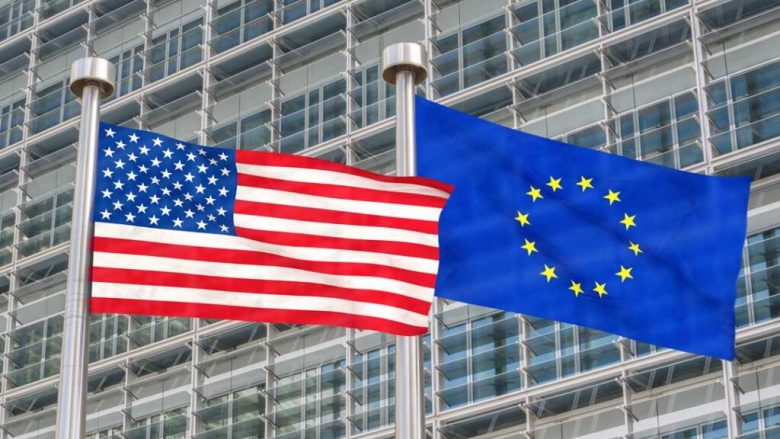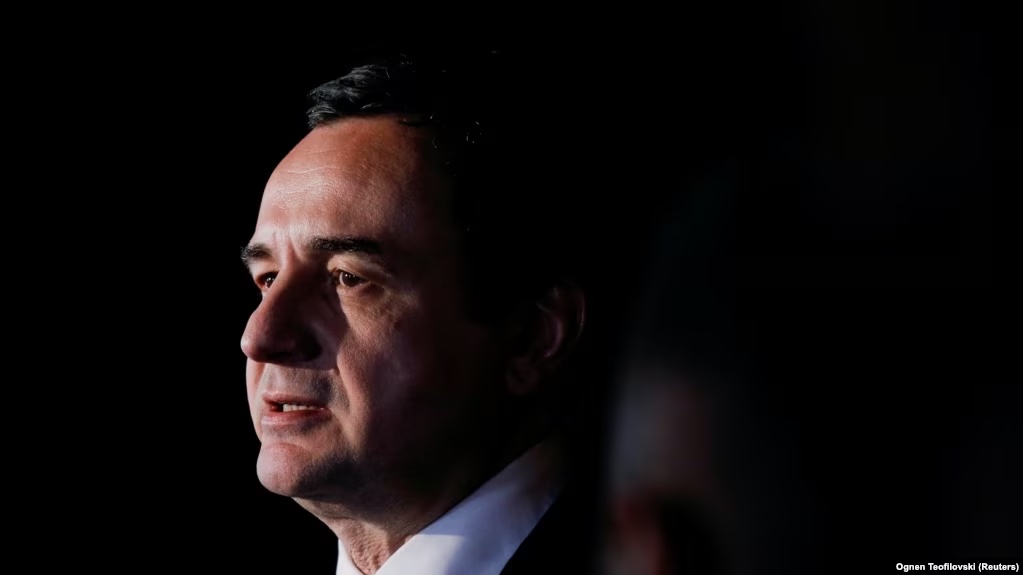Tuesday, July 14th 2015

French FM says a UN resolution on the deal is expected within days; Russian FM says Russia will be involved in implementing the deal
Leaders from all over the world have started to react to the historic nuclear agreement between Iran and the P5+1 world powers achieved in the Austrian capital of Vienna.
Russia has welcomed the nuclear agreement between Iran and the P5+1 world powers’ group in the Austrian capital of Vienna.
“We are certain that the world heaved a sigh of relief today,” Russian President Vladimir Putin said Tuesday in a written statement issued on the official Kremlin website, following the announcement of the agreement.
“Russia will do everything in its power to ensure the full implementation of the Vienna agreements, assisting in strengthening global and regional security, global nuclear non-proliferation, the creation in the Middle East of a zone free from weapons of mass destruction and their means of delivery, and the mobilization of a broad coalition in the region to counter terrorist threats,” the statement said.
“The comprehensive agreement rests on the solid foundation of international law, primarily the nuclear non-proliferation treaty and the IAEA safeguards, including the additional protocol. Despite the attempts to validate any scenarios based on the use of force, the parties to the negotiations made a choice in favor of stability and cooperation, which will be reflected in a corresponding UN Security Council resolution,” the statement said.
Putin also said in the statement that Iran now had a unique opportunity to continue developing its uranium enrichment under the “gradual lifting of sanctions”.
“Iran gets the opportunity to develop this program, including uranium enrichment, under IAEA control and with the gradual lifting of sanctions imposed against Tehran, something we have long called for. This is also important for the implementation of large-scale plans of peaceful nuclear cooperation between Russia and Iran that got support in the documents approved today,” he added.
He hoped that bilateral relations between Iran and Russia would receive a new impetus and would no longer be influenced by external factors.
The lower house of Russia’s parliament, the State Duma, described the Iran nuclear agreement as “victory of diplomacy”.
French Foreign Minister Laurent Fabius said Tuesday that the UN Security Council was expected to pass a resolution within days to approve the nuclear deal.
“A resolution will be very quickly presented to the UN Security Council… It’s a matter of days,” Laurent Fabius told a press conference in Vienna.
He said the nuclear deal could “normalize” Tehran’s international relations and even help resolve certain crises in the Middle East.
“This is an historic deal in its aim and because it can help facilitate a normalization of Iran’s international relations,” Fabius said, adding that he hoped it would “help a certain number of crises in which it (Iran) is directly or indirectly involved be resolved more easily.”
Russian Foreign Mininster Sergei Lavrov said Tuesday that the agreement on Iran nuclear program removed all sanctions and also gave it the right to pursue “peaceful atom”.
According to the Sputnik news wire, Lavrov said Russia would be actively involved in implementing the Iran deal.
U.K. Foreign Secretary Philip Hammond said the deal was the culmination of over a decade of complex negotiations. “Under the agreement, Iran will grant the International Atomic Energy Agency access to verify adherence to the restrictions placed on its nuclear programme, giving the international community confidence that the programme is, and will remain, exclusively peaceful.”
“In return, once Iran has taken key steps to introduce these restrictions, the international community will lift some of its sanctions on Iran, delivering significant economic and financial benefits,” Hammond said.
He also said that the international community also recognized the concerns of the Gulf states. “We will maintain our clear position in support of the Gulf states and against Iranian interference in their internal affairs. We hope, and expect, that this agreement will herald a step-change in Iran’s relations with its neighbours and with the international community,” he added.
Germany praises Iran deal, eyes boost in trade
German politicians and business leaders have praised the nuclear deal with Iran on Tuesday and expressed hope for reviving political and trade ties with the oil-rich nation.
Germany’s Vice Chancellor, Economy and Energy Minister Sigmar Gabriel hailed the agreement as “enormous progress” in overcoming decades-long tensions with Iran.
“After months of long negotiations, finally we have a glimmer of hope for defusing the imminent conflict and to develop better relations with Iran,” he told reporters during his visit to Beijing.
Gabriel has invited business leaders and industrialists to accompany him on a visit to Tehran on Sunday, which was planned with short notice, German press agency DPA reported.
Volker Trier, head of foreign trade at the German Chamber of Commerce and Industry, or DIHK, expressed hope that following the agreement on Iran’s nuclear program and the lifting of sanctions, German companies can boost exports.
“If everything goes well, we can reach to the €10 billion ($11 billion) level in exports in three to four years,” he told the agency.
Western sanctions against Iran had effectively restricted trade of German firms with Iran, and exports remained at €2.4 billion ($2.6 billion) in 2014.
Chancellor Angela Merkel’s Christian Democrats and their coalition partner, the Social Democrats praised the nuclear agreement with Iran as “a historic deal,” and expressed hope for a new chapter with Iran.
Franz Josef Jung, senior lawmaker from Merkel’s Christian Democrat bloc CDU/CSU, said the agreement respected Iran’s right for non-military, civilian nuclear technology, but also put it under the control of the international community.
“What is important is that Iran’s compliance with the agreement can be controlled at any time. This control is vital for the security of Israel and that of the whole region,” Jung said in a written statement.
“The agreement also contributes to the prevention of a nuclear arms race in the Middle East and the proliferation of nuclear arms in the region,” he stressed.
Social Democrat lawmaker Niels Annen raised hope for closer cooperation with Iran on regional problems, following the agreement.
“The Social Democrat group hopes that the successful agreement in Vienna would also be a positive signal for comprehensive cooperation with Iran, on issues such as the resolution of the Syrian conflict,” Annen said in a written statement.
He also highlighted the role of Germany and that of Foreign Minister Frank-Walter Steinmeier, who participated in the negotiations that aimed at a peaceful solution to the Iran nuclear crisis.
“Today is perhaps a historic day for all those who wanted the peaceful resolution of the conflict, and it is for me personally a great moment,” Steinmeier told reporters in Vienna, after the talks with world powers and Iran.
“This is an agreement which brings more security to the world, the region and Iran’s neighbors,” he said.
But Steinmeier also warned against possible attempts by radicals to wreck the agreement.
“This agreement does not solve all the problems in relation to Iran. And we cannot rule out the possibility that those who oppose the agreement may try to torpedo the implementation,” he warned.
“But I am convinced that today’s agreement strengthens those in Iran who want peaceful relations with their neighbors, and who know that people here need more than rhetoric of war,” Steinmeier stressed.
Turkey welcomes Iran nuclear deal
Turkey welcomed the nuclear deal between Iran and the P5+1 group of world powers with a statement on Tuesday.
“Turkey congratulates the parties involved for their efforts and attaches importance to the implementation of all the elements of the agreement reached,” the Turkish Foreign Ministry said.
The statement said the full implementation of the agreement was important for the region’s peace, security and stability.
The Turkish Ministry also stressed the importance of cooperation between the International Atomic Energy Agency and the international community.
Pakistan also welcomed the Iran nuclear deal. Pakistani Foreign Affairs Adviser Sartaj Aziz said in a statement that the nuclear deal would pave the way for the stalled Pakistan-Iran gas pipeline project, which had been pending for years due to international sanctions on Iran. Aziz said the deal would also pave the way for better trade relations between Pakistan and Iran.
Earlier, Iranian Foreign Minister Javad Zarif said: “The nuclear deal between Iran and the P5+1 group is not a perfect agreement, but it is a historic moment.”
“Today could have been the end of hope…but today we are starting a new chapter of hope,” Zarif added.
Meanwhile, EU foreign policy chief Federica Mogherini defined the final nuclear deal as the beginning of a new era in diplomacy.
“Iran nuclear deal opens new chapter; shows diplomacy can overcome decades of tensions,” she said.
UN Secretary-General Ban Ki-moon also welcomed the agreement between the P5+1 states and Iran to limit Iran’s nuclear work.
Ban made the remark on the sidelines of the 3rd Financing for Development International Conference being held in the Ethiopian capital Addis Ababa on Tuesday.
“I warmly welcome the historic agreement reached between the P5+1 and Iran,” the UN chief said. “It is a testimony to the value of dialogue.”
“This agreement will contribute to future understanding and it could solve global problems and immensely contribute to the stability of the region and the world,” he added. /AA/




